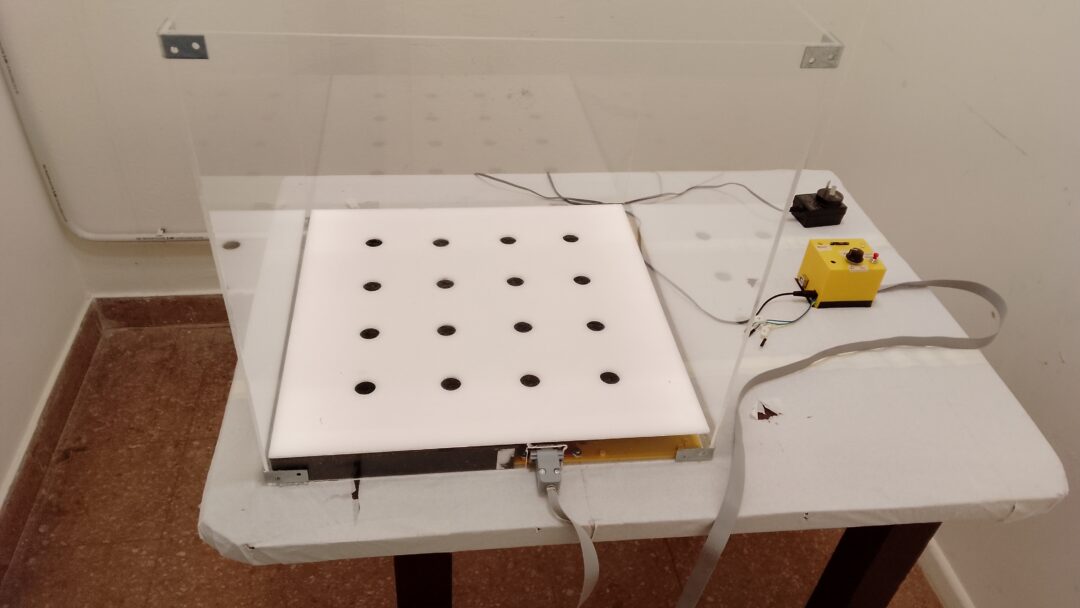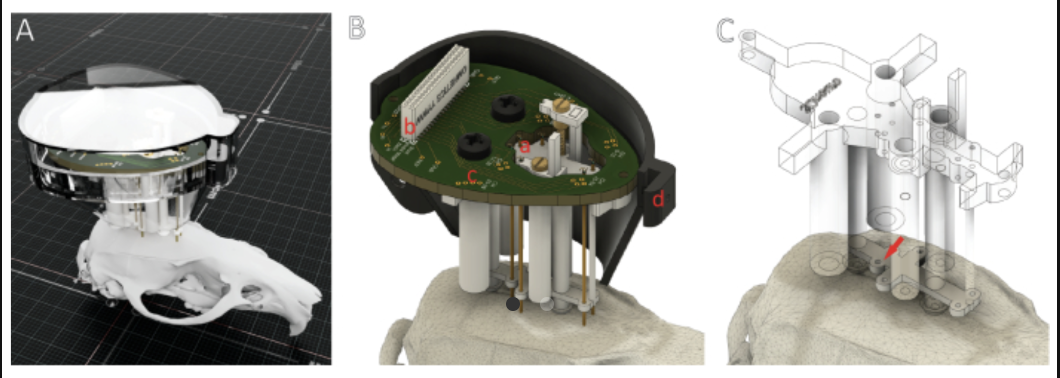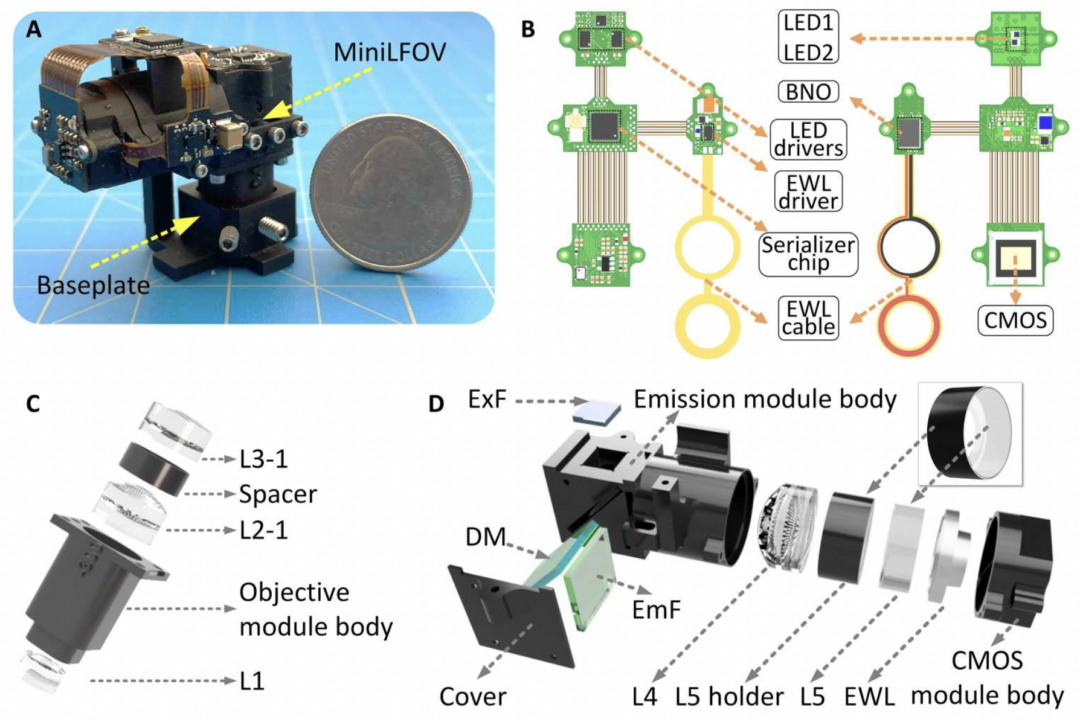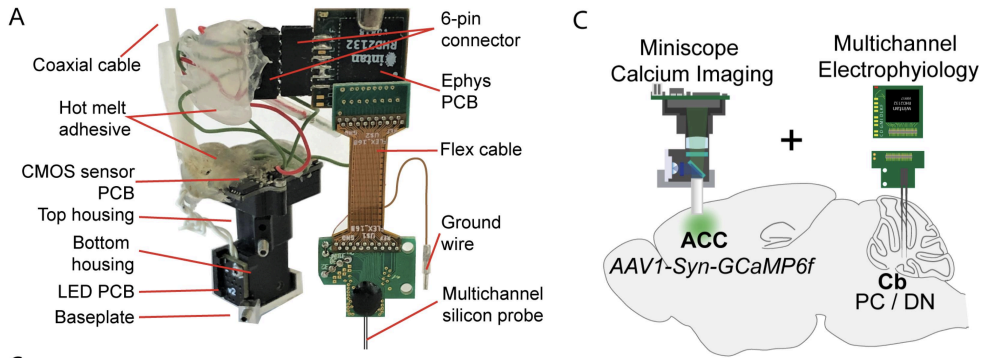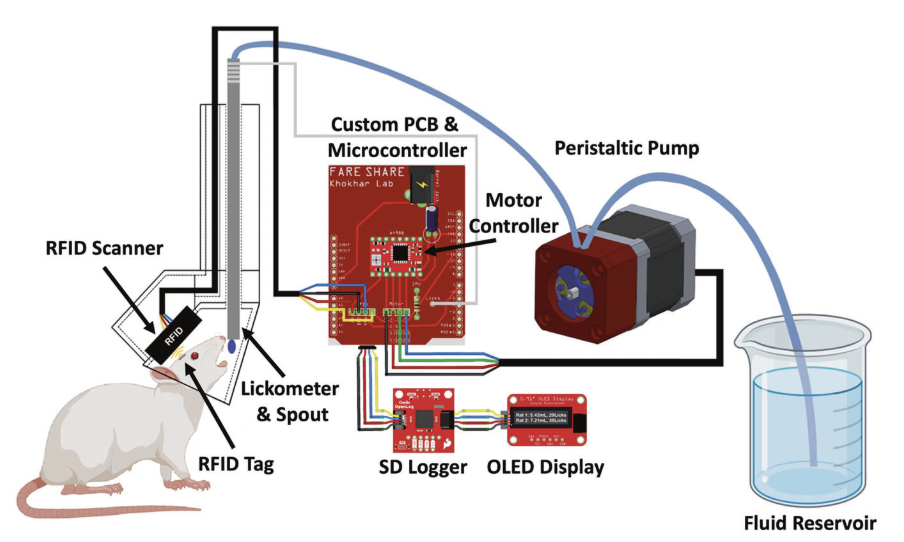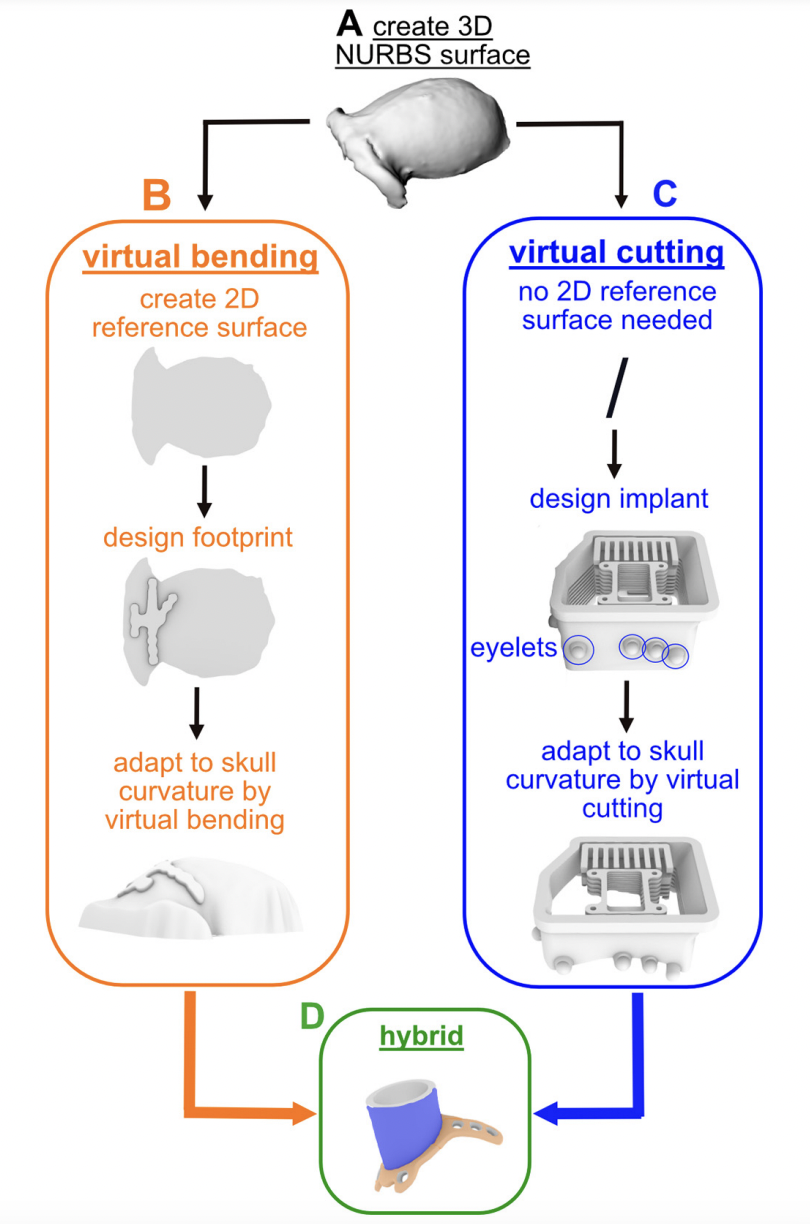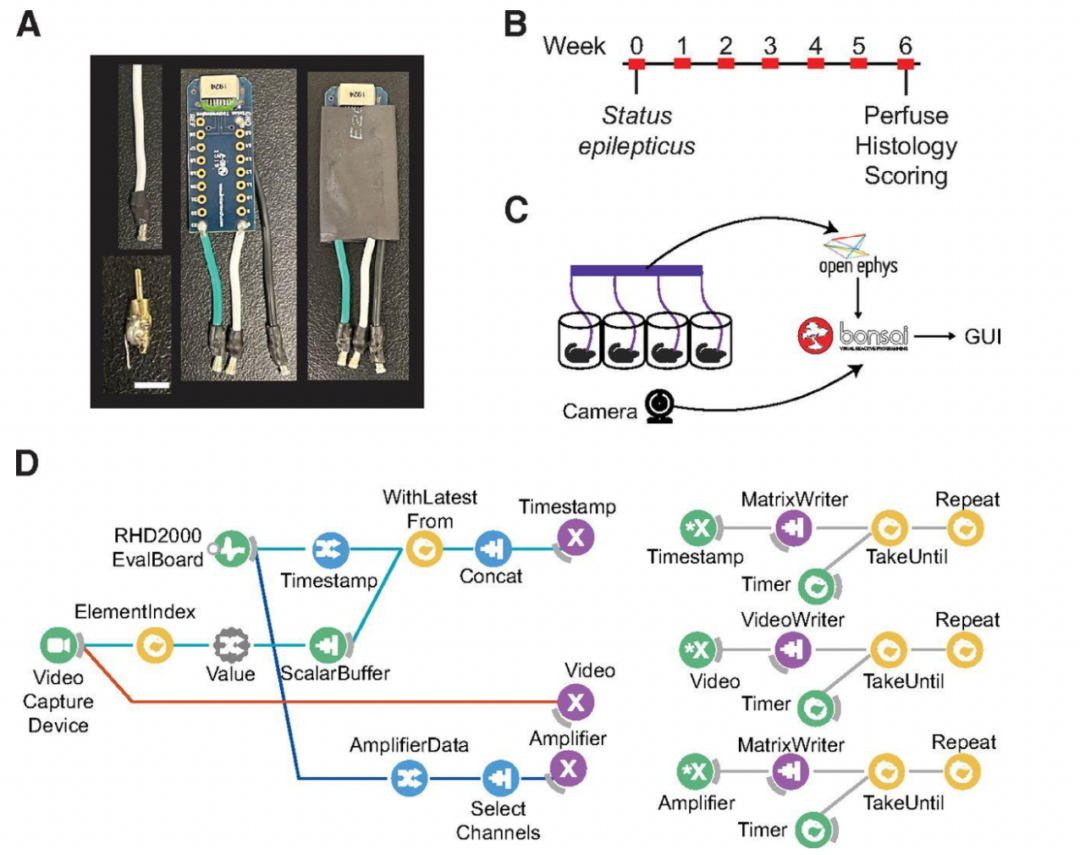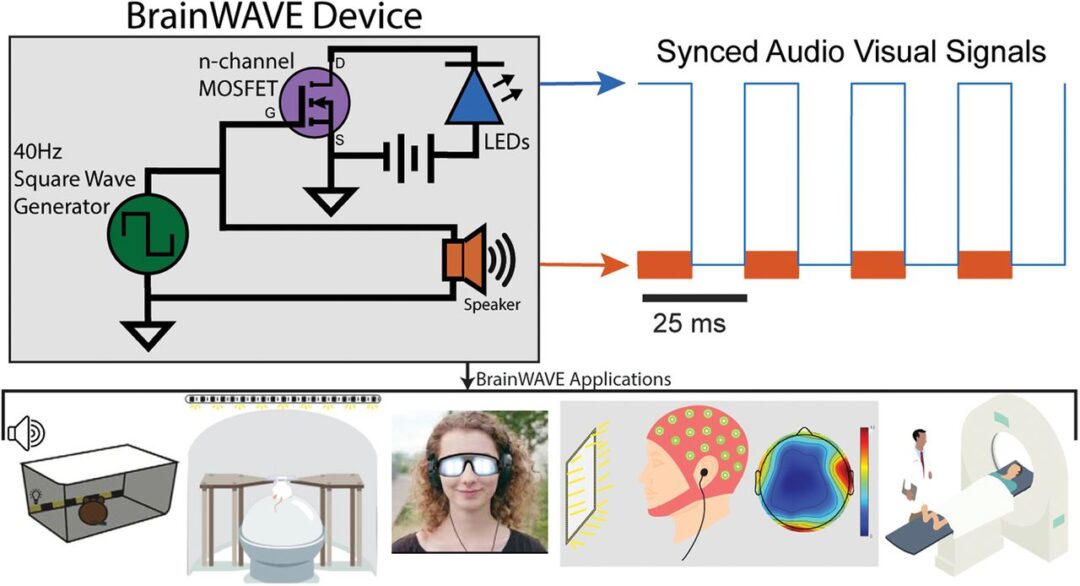In the Journal of Neurophysiology, Brice Williams and colleagues have shared their design for a novel dual-port lick detector. This device can be used for both real-time measurement and manipulation of licking behavior in head-fixed mice. Measuring licking behavior in mice provides a valuable metric of sensory-motor processing and can be nicely paired with simultaneous neural recordings. Williams and colleagues have developed their own device for precise measuring of licking behavior as well as for manipulating this behavior in real time. To address limitations of many available lick sensors, the authors designed their device to be smaller (appropriate for mice), contactless (to diminish electric artifacts for neural recording), and precise to a submillisecond timescale. This dual-port detector can be implemented to detect directional licking behavior during sensory tasks and can be used in combination with neural recording. Further, given the submillisecond precision of this device, it can be used in a closed-loop system to perturb licking behaviors via neural inhibition. Overall, this dual-port lick detector is a cost-effective, replicable solution that can be used in a variety of applications. This research tool was created by your colleagues. Please acknowledge the Principal Investigator, cite the article in which the tool was described, and include an RRID in the Materials and Methods of your future publications. Project portal RRID:SCR_021454; Software RRID:SCR_021521 And be sure to check out their Github. Check out projects similar to this!Dual-port Lick Detector


Github
Have questions? Send us an email!



